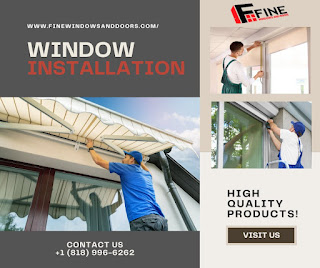Evaluating Windows Vinyl: Advantages and Possible Disadvantages
When selecting windows for your home, the choice of material is as crucial as the design. Vinyl has emerged as a popular option among homeowners due to its resilience, affordability, and low-maintenance features. Offering an excellent balance between cost and performance, vinyl windows are highly sought after. However, like any material, it’s essential to weigh both the advantages and disadvantages before making a final choice. This article will break down the pros and possible cons of vinyl windows to guide your decision.
Understanding Windows Vinyl
Before diving into the benefits and drawbacks, it's important to clarify what vinyl windows are. These windows are crafted from polyvinyl chloride (PVC), a durable and flexible type of plastic. PVC is often used in construction due to its moisture-resistant properties, making it a prime choice for window frames. Vinyl windows are available in various styles and colors, offering versatility for different architectural designs.
The main appeal of vinyl windows comes from their durability and affordability. Unlike wood, which requires consistent upkeep, or aluminum, which can corrode over time, vinyl can endure various weather conditions without deterioration. Beyond durability, vinyl windows are energy-efficient, customizable, and easy to install. However, there are also some limitations to consider.
Advantages of Windows Vinyl
One of the most notable advantages of vinyl windows is their energy efficiency. Vinyl acts as an excellent insulator, reducing heat transfer and helping to maintain a stable indoor temperature. This can lead to decreased energy costs, as your heating and cooling systems will require less effort to keep your home comfortable. Many vinyl windows are also designed with double or triple panes, providing additional insulation and boosting energy savings.
Another major benefit is the minimal maintenance required for vinyl windows. Unlike wood, which needs regular staining, painting, or sealing, vinyl requires virtually no maintenance. The material’s resistance to moisture, mold, and pests ensures that it won't warp, rot, or attract insects, making it an ideal choice for homeowners seeking a hassle-free option that provides long-term value.
Vinyl windows also offer a high level of customization. Available in various colors, finishes, and designs, vinyl windows can match the aesthetic of any home. Additionally, they are generally more affordable than wood or aluminum windows, making them a budget-friendly option that doesn’t compromise on quality or appearance.
Windows Vinyl: Possible Disadvantages
Despite their many advantages, vinyl windows come with some potential disadvantages that homeowners should be aware of. One common limitation is the lack of flexibility when it comes to color. While vinyl windows are available in multiple colors, they cannot be repainted. This could pose a problem if you plan to change your home’s color scheme in the future, as your windows may no longer match.
Another issue is that extreme temperatures can affect the durability of vinyl. In very hot climates, vinyl may soften, potentially leading to warping or bending over time. Conversely, in extremely cold conditions, vinyl can become brittle, increasing the likelihood of cracking. Although high-quality vinyl windows are designed to handle a wide range of temperatures, they may not perform as well in regions with severe weather conditions.
Additionally, vinyl windows may have a shorter lifespan compared to premium materials like fiberglass or wood-clad windows. While vinyl is certainly durable, it might not last as long as more expensive alternatives. Homeowners seeking a long-term investment might want to consider this factor when deciding between vinyl and other window materials.
Is Windows Vinyl the Right Choice for Your Home?
Determining whether vinyl windows are suitable for your home depends on several factors. First, evaluate your budget. Vinyl windows are typically more affordable than other materials, making them an attractive option for cost-conscious homeowners. Next, consider your local climate. If you live in an area with extreme weather, vinyl might not be the best long-term solution.
Another aspect to think about is your home’s aesthetic. If you frequently update your exterior design, the inability to repaint vinyl windows could be a downside. However, if you’re looking for a low-maintenance, energy-efficient option that offers excellent value, vinyl windows are certainly worth considering.
Weighing the Pros and Cons of Windows Vinyl
In conclusion, vinyl windows present numerous benefits, such as energy efficiency, low maintenance, and affordability. They are an excellent option for homeowners who prioritize ease of care and strong performance. However, it’s crucial to factor in potential disadvantages, including limited color options, susceptibility to extreme temperatures, and possibly shorter lifespans than other materials. By carefully considering these aspects, you can make a well-informed decision that fits your budget, climate, and long-term goals for your home.

.png)


Comments
Post a Comment